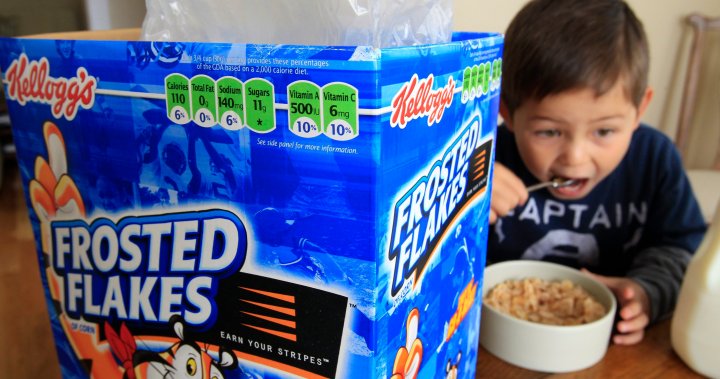New research conducted by the University of Ottawa and funded by Heart & Stroke reveals that popular cartoon characters like Tony the Tiger and the Pillsbury Doughboy are contributing to unhealthy eating habits in Canadian children. These licensed and spokes characters have a significant impact on children, leading them to prefer and request junk food products advertised with these characters. According to Monique Potvin Kent, associate professor in the School of Epidemiology and Public Health at the University of Ottawa, the loveability and familiarity of these characters make them particularly persuasive to children.
These cartoon characters pose a threat to children’s health, as obesity rates among children and teens in Canada continue to rise. The majority of their food consumption comes from ultra-processed foods that are high in fat, sugar, and salt. This can lead to chronic diseases later in life. The study also found that the type of character used in advertising makes a difference, as children exposed to ads featuring spokes characters had a significantly higher impact compared to those exposed to licensed characters. However, licensed characters still had an influence on children, surpassing the impact of ads without cartoon characters.
Childhood obesity in Canada has nearly tripled in the last 30 years, primarily due to lifestyle issues such as lack of exercise and regular consumption of high-calorie foods. Genetic and hormonal factors can also play a role. Obesity in children puts them at risk of various health problems, including heart disease, Type 2 diabetes, sleep apnea, and depression. Food and beverage advertising targeted at children has been associated with childhood obesity, with the majority of ads promoting unhealthy products.
Dr. Tom Warshawski, a pediatrician and chair of the Childhood Obesity Foundation, highlights the detrimental effects of highly processed foods on children’s lifelong cardiovascular health and eating habits. He emphasizes the need for a healthier environment for children, focused on good nutrition and physical activity, rather than letting the food and beverage industry shape their habits.
Currently, food and beverage advertising to children in Canada is self-regulated by the industry. However, self-regulation has proven ineffective in reducing children’s exposure to food advertisements. Health Canada is working to introduce restrictions on advertising certain foods to children to protect their health. Proposed regulations aim to restrict ads for foods promoting excess intakes of sodium, sugar, and saturated fat. Additionally, Bill C-52, currently in Parliament, seeks to prohibit the marketing of foods with excessive amounts of these ingredients to children under the age of 13.
Although these regulatory efforts are a step in the right direction, the researchers and Dr. Warshawski believe more needs to be done. They suggest banning these cartoon characters from food packaging or repurposing them to promote healthier options. Chile has already implemented a ban on the use of cartoon characters on children’s food packaging for sugary cereals as a means to combat childhood obesity. It is crucial for Canada to take further action in addressing this issue and protecting the health of its children.
Denial of responsibility! VigourTimes is an automatic aggregator of Global media. In each content, the hyperlink to the primary source is specified. All trademarks belong to their rightful owners, and all materials to their authors. For any complaint, please reach us at – [email protected]. We will take necessary action within 24 hours.


